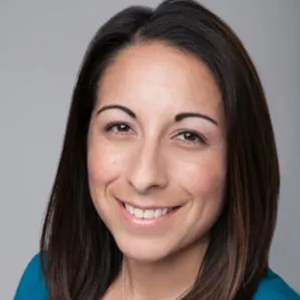
Week Overview
General Update
Opposite house fiscal cutoff was on Monday, February 28th, which means any bill that did not pass out of the fiscal committee in the opposite house by that day is considered dead. Of the 399 bills that made it past opposite house policy cutoff, 378 bills made it past opposite house fiscal cutoff. They haven’t tallied up the number of bills that passed opposite house floor cutoff yet.
Following fiscal cutoff, attention quickly shifted to floor action where both chambers were on the floor everyday, Tuesday through Friday last week, some days going late into the night, in order to pass bills by opposite house floor cutoff on Friday, March 4th. The exception are bills deemed necessary to implement the budget, which are not subject to the cutoff calendar.
For floor cutoffs, debate must begin on the last bill they are going to pass by 5:00pm on cutoff day, which is why the last bills that pass on floor cutoffs are known as the “5 o’clock bill”. The 5 o’clock bills on Friday’s opposite house floor cutoff were HB 1616 (concerning the charity care act), and SB 5078 (addressing firearm safety measures to increase public safety).
Budget negotiations have also been happening in earnest behind the scenes over the past week. Negotiators have been working on the operating, capital, and transportation supplemental budgets. With less than one week left in session, budget writers and staff are in the final steps of ‘buttoning up’ the final, negotiated budgets. The budgets will be unveiled in the coming days in order for final versions to be agreed upon and passed by both chambers before session adjourns on March 10th.
In addition to the budgets, this final week of session will focus will on working through bills that were amended by the opposite house. When an amended bill is sent back to the house of origin, that chamber can choose to concur with those changes, dispute them, or seek resolution through a conference committee. See the primer below that further explains these processes.
Click here to watch this week’s TVW Week in Review, which provides a good wrap-up of the past week in Olympia.
Session Primers
As we go through session, we will periodically do brief primers on things related to session and the legislative process. We often use jargon and things move very quickly, so our goal with these primers is to help you better understand what is going on in Olympia as we go along. If you have any questions, don’t hesitate to reach out!
Primer on Concurrence, Dispute, and Conference
If a bill was amended in the opposite house from which it was originally introduced, the house of origin has to decide whether it will concur with the amendments or not. This step must happen before a bill can be sent to the Governor’s desk for signature. Leadership in each chamber decides which bills returned from the opposite house will be discussed and then places them on the concurrence calendar. There are three potential paths for bills that go into concurrence:
- Concurrence: If the house of origin concurs with the amendments, the bill has passed the legislature and it will head to the
- Dispute: If the house of origin disagrees with the amendment(s) from the opposite house, they can ask the opposite house to recede from the amendments. If the opposite house recedes, the bill has passed the legislature and it will head to the Governor.
- Conference: If the two houses cannot resolve their differences, they can ask for a conference committee to reach a resolution. Members from each house are selected to meet to discuss the differences. If they agree on what is to be done, the conference committee makes a report. Both houses must adopt the conference report for the bill to pass the If one house does not adopt the conference report (either by vote or inaction), the bill has not passed.
Primer on Timing for Bill Signings
Bills that are delivered to the governor more than five days before the legislature adjourns have five days to be acted on. The governor may decide to sign a bill, veto part of it, or veto all of it. Bills that are delivered fewer than five days before the legislature adjourns have 20 days to be acted on by the governor. The days are counted as calendar days, not business days. Sundays are not counted, but Saturdays and holidays are. The clock does not start until the bill ‘hits the governor’s desk’. It is important to note that the clock doesn’t start immediately when it passes the legislature. After passage (or concurrence), the bill must be signed by both the Speaker of the House and President of the Senate and then it must be delivered to the governor. Doing this paperwork can sometimes take days, and sometimes it happens very quickly. Once it has been delivered to the governor the clock begins. If the governor does not act on a bill after the allotted number of days, it is as if it were signed. In other words, if the governor doesn’t sign a bill it doesn’t die, it defaults to passing. You can find the schedule for upcoming bill signings here.
Priority Areas
Capital Gains Tax
On March 1, Douglas County Superior Court Judge Brian Huber ruled the capital gains tax initiated by SB 5096 of 2021 unconstitutional. Proponents of the capital gains tax have stated that the ruling at this level was anticipated and is the first step in a long legal journey that will eventually end up at the Washington Supreme Court. Attorney General Bob Ferguson immediately signaled the state’s plan to appeal. Crosscut ran a helpful piece summarizing the key issues.
Climate Change and the Environment
Rep Lekanoff introduced HB 1753 on behalf of the Governor. The bill requires state agencies that administer funds from certain accounts created by the Climate Commitment Act (CCA) to offer consultation to federally recognized tribes whose tribal resources may be affected by the award of funds from the accounts. It requires applicants for funding from certain CCA accounts to engage in a preapplication process with all federally recognized tribes within the project area.
The Senate passed the bill on March 4th with unanimous support and now heads to the Governor’s desk for his signature.
Sen Nguyen sponsored SB 5722 on behalf of the Governor. It requires the Department of Commerce to adopt state energy management and benchmarking requirements for building between 20,000 and 50,000 square feet and to multifamily residential buildings larger than 50,000 square feet (tier 2) by December 1, 2023. The bill also requires Commerce to evaluate benchmarking data to determine energy use and greenhouse gas emissions average by building type by July 1, 2029. Commerce must adopt rules for performance standards for tier 2 buildings by December 31, 2030 and extend the early adopter incentive program to tier 2 buildings. The bill was amended and passed the House on March 3rd with a 53-45 vote count. The adopted amendment can be found here. Because it was amended in the opposite chamber, it will have to go back for concurrence, dispute, or conference.
Rep Duerr sponsored HB 1770 on behalf of the Governor and it updates the minimum State Energy Code requirements for residential and nonresidential construction. It requires each city, town, and county to enforce the Washington State energy code for residential building or adopt the statewide residential reach code. The bill requires the State Building Code Council to adopt a statewide residential reach code. It did not advance by opposite house cutoff and is now considered dead.
COVID-19 Updates
On February 28th, Governor Jay Inslee announced Washington will be lifting most requirements of the mask mandate on Saturday, March 12th, which is an earlier date than originally stated.
The announcement was coordinated and jointly announced with Oregon Governor Kate Brown and California Governor Gavin Newsom. Masks will still be required in certain settings including health care, corrections facilities, and long-term care facilities. The new state policies do not change federal requirements, which still include masks on public transit. The Washington State Department of Health will be issuing new guidance for K-12 schools this week so schools can prepare to implement updated safety protocols.
Housing & Homelessness Accessory Dwelling Units (ADUs)
Rep Shemake introduced HB 1660, which deals with ADU regulations. The bill requires cities and counties to allow for the construction of ADUs within urban growth areas and prohibits such cities and counties from imposing certain ADU regulations, by the time of their next comp plan update. It removes the exemption allowing fully planning cities to require off-street parking for ADUs within a quarter-mile of a major transit stop under certain circumstances. Additionally, it prohibits governing documents applicable to homeowners’ associations, condo associations, associations of apartment owners, common interest communities, and restrictive covenants created after the effective date of the act prohibiting ADUC within UGAs. The bill did not advance by opposite house cutoff and is now considered dead.
Rep Walen introduced HB 1841, which allows counties to provide a property tax exemption for an ADU for as long as it is rented to a low-income household. The bill was scheduled for executive session on February 28th, but no action was taken and is now considered dead.
Condos
Sen Gildon introduced SB 5758 and it deals with condo conversions. The bill requires the Housing Finance Commission to implement a condo conversion tenant-to-homeowner program. It requires the Affordable Housing Advisory Board (AHAB) to review and report on issues associated with the conversion of multifamily building to condo ownership. Additionally, it expands membership of AHAP to include a representative of a condo association or community interest community association. The House passed the bill on March 4th with unanimous support and now heads to the Governor’s desk for his signature.
Homelessness
Rep Chopp sponsored HB 1866, which establishes the Apple Health and Homes Program (Program) to provide a permanent supportive housing benefit and a community support services benefit to persons who meet eligibility criteria related to income, medical risk factors and barriers to finding stable housing. It establishes the Office of Apple Health and Homes (Office) within the Department of Commerce to fund permanent supportive housing units to fulfill the needs of persons enrolled in the Program. Additionally, it establishes the Apple Health and Homes Account to be used for permanent supportive housing programs administered by the Office and expands the use of the Home Security Fund Account for it to be used to fund permanent supportive housing. Commerce is required to establish a rapid permanent supportive housing acquisition and development program to issue financial assistance to certain local government and nonprofit entities for acquiring and developing permanent supportive housing units. The Joint Legislative Audit and Review Committee (JLARC) is required to review the efficacy of the Program and report their findings to the legislature by December 1, 2027. The Senate amended and passed the bill on March 3rd with a 30-17 vote count. The adopted amendments can be found here and here. Because it was amended in the opposite chamber, it will have to go back for concurrence, dispute, or conference.
Encampments
Sen Kuderer introduced SB 5662 on behalf of the Governor. The bill establishes the Office of Intergovernmental Coordination on Public Right-of-Way Homeless Encampments (office) within the Department of Social and Health Services to coordinate efforts related to identifying permanent housing and services for persons encamped on public rights-of-way. It was referred to the House Appropriations committee and heard on February 25th. The bill did not move before the fiscal committee cut-off and is now considered dead.
Landlord Tenant Relations
Sen Trudeau sponsored SB 5749, which allows tenants to pay for rent with a personal check, cashier’s check, or money order. It requires landlords to allow tenants to submit rent payments by mail or at an accessible, on-site location, and prohibits a landlord from including in the rental agreement a provision in which the tenant agree to make rent payments through electronic means only. The House amended and passed the bill on March 4th with a 91-5 vote count. The adopted amendment can be found here. Because it was amended in the opposite chamber, it will have to go back for concurrence, dispute, or conference.
Land Use
Comp plan updates
Rep Duerr sponsored HB 1241 and it increases the review and revision cycle for comprehensive plans under the GMA from 8 to 10 years. It also extends the deadline for the next comprehensive plan update for King, Kitsap, Pierce, and Snohomish counties, and for cities within those counties, from June 30, 2024, to December 31, 2024. Additionally, it requires cities to submit an implementation progress report with information to the Department of Commerce 5 years after reviewing and revising comp plan and to create a work plan to take any needed actions within two years, if any action to implement changes in the most recent comp plan update has not occurred at the time of the report. The Senate passed the bill on March 3rd with a 27-21 vote count and now heads to the Governor’s desk for his signature.
Rep Duerr introduced HB 1978, which increases the review and revision cycle for Shoreline master plans from 8 to 10 years so it aligns with the new revisions to the comp plan updates under the GMA. The bill did not advance by opposite house of origin cutoff and is now considered dead.
Rep Pollet introduced HB 1717, concerning tribal participation in planning under the growth management act. The bill requires local governments, upon receiving notice from a federally recognized Indian tribe, to enter into negotiations on a memorandum of agreement for collaboration and coordination with the tribe for participation in the planning process under the GMA, and provides for mediation if an agreement is not reached. It requires the Department of Commerce to provide notice to tribe of a city or county’s proposed adoption of a comp plan upon request of a tribe, and to facilitate a dispute resolution process to attempt to resolve a tribe’s concerns with a city or county’s comp plan or development regulations.
Additionally, it requires a tribe that has a reservation or ceded lands within a county to be invited to participate in the countywide planning process. The Senate passed the bill on March 3rd with a 46-0 vote count and now heads to the Governor’s desk for his signature.
Rep Duerr sponsored HB 1099, which adds a goal of environmental resiliency to the listed goals of the GMA and adds an environmental resiliency element to the list of elements that must be included within the comp plans certain counties and cities must adopt under the GMA. It requires the environmental resiliency element of the comp plan to address the environmental related problems specific to a jurisdiction and requires Commerce to adopt guidance that creates a model environmental resiliency element. The Senate amended and passed the bill on March 3rd with a 31-16 vote count. The adopted amendment can be found here. Because it was amended in the opposite chamber, it will have to go back for concurrence, dispute, or conference.
Salmon recovery
Rep Lekanoff introduced HB 1117, which adds the goal of salmon recovery to the listed goals of the GMA. The bill was introduced in the 2021 session but did not pass so has been reintroduced. It requires the land use element of comp plans adopted under the GMA to include a strategy that achieves net ecological gain of salmon habitat. Additionally, it requires capital facilities element and transportation element of comp plans adopted under the GMA to include a schedule for the elimination of all identified fish passage barriers. The bill also requires development regulations that protect critical areas to apply certain mitigation requirements. It did not move out of the Senate Ways & Means committee before fiscal cut-off and is now considered dead.
Urban Growth Areas (UGAs)
Sen Short introduced SB 5593 and it allows a county to make revisions to an urban growth area boundary to accommodate patters of development under certain conditions. It provides that any revision to an urban growth area boundary cannot increase the total surface area of the urban growth area, and that any areas removed from the urban growth area cannot have been characterized by urban growth. The House passed the bill on March 3rd with unanimous support and now heads to the Governor’s desk for his signature.
Water
Sen Rolfes introduced SB 5585 on behalf of the Department of Ecology and it removes the annual cap on fees established by the Department of Ecology and charged to municipalities for wastewater facility permits. It created an advisory committee to provide recommendations to Ecology for adjusting wastewater facility permit fees charges to municipalities by December 31, 2022 and requires Ecology to present those recommendations to the Legislature before the end of 2023 legislative session. The House passed the bill on March 4th with a 57-41 vote count.
Because it was amended in the opposite chamber, it will have to go back for concurrence, dispute, or conference.
Prejudgment interest
Sen Kuderer introduced SB 5155 and it applies prejudgement interest to judgements founded on the tortious conduct of public agencies, individuals, and other entities by modifying interest accrual date from the date of entry of judgement to the date the cause of action accrues.
Provides that judgements founded on tortious conduct that occurred while plaintiff was a minor bear interest from the date the action is commenced or the date the minor turns 18 years old, whichever is earlier. It also limits prejudgement interest to arbitration awards and judgements entered following trial of the matter. The bill didn’t pass by opposite house floor cutoff, so is considered dead.
Paid Family & Medical Leave
Senator Robinson introduced SB 5649, which modifies the Washington state paid family and medical leave. It provides that an allowable purpose for family leave is any leave taken by an employee during the 7 calendar days following the death of the family member for whom the employee would have qualified to take medical leave for birth of their child or would have qualified for family bonding leave. Specifies that leave taken by certain employees in the first 6 weeks after giving birth must be medical leave unless the employee chooses to use family leave. It expires the collective bargaining agreement exception contained in the Paid Family and Medical Leave (PFML) program and requires the Employment Security Department to publish a list of employers with approved voluntary plans on its website. Additionally, it contains provisions on short and long-term actuarial services assessing the financial condition of the PFML program to maintain financial stability of the family and medical leave insurance account. A legislative task force on PFML program premiums is created and requires a Joint Legislative Audit and Review Committee report. The House amended and passed the bill on March 3rd with a 96-2 vote count. The adopted amendment can be found here. Because it was amended in the opposite chamber, it will have to go back for concurrence, dispute, or conference.
Unemployment insurance
Sen Keiser introduced SB 5873 and decreased the maximum Unemployment Insurance (UI) social cost factor for 2022 and 2023. It sets a maximum UI rate class for the purposes of the percentage of the social cost factor to be paid by small businesses in 2023. The House passed the bill on March 1st with a 95-0 vote count and now heads to the Governor’s desk for his signature.
Transportation
Supplemental Transportation Budget
The Senate released their proposed supplemental transportation budget on February 20th and the House released theirs the following day on February 21st. Both budgets appropriate funding for the upcoming year and for the first year of the 16-year Move Ahead WA proposal.
The Senate and House heard the supplemental budget (SB 5689/HB 1786) on Monday, February 21st. The Move Ahead Washington spending bill (SB 5975/HB 2118) was also heard the same day. SB 5689 passed the Senate Transportation committee on February 23rd and passed the Senate with a 41-8 vote count on February 25th. HB 1786 passed the House Transportation committee on February 24th and passed off the House floor on February 26th with a vote of 91-3.
The Move Ahead spending bills were also heard and passed out of their respective transportation committees in conjunction with the supplemental transportation budget. SB 5975 passed the Senate with a 29-20 vote count on February 25th and HB 1786 passed the House with a 91-3 vote count on February 26th. The Chairs of the transportation committees have been negotiating and reconciling the differences.
A summary of the supplemental transportation budgets can be found: Senate proposal/House proposal
Transportation Revenue
The Move Ahead Washington transportation revenue proposal provides $16.8 billion over 16- year transportation proposal that makes historic investments in public transit and multimodal options to ensure transportation options are safe, accessible, and affordable for all. It also fulfills the obligation to replace fish passage barriers, invests in the ferry system, highway maintenance and preservation, and funding projects large and small across the state.
Full list of investment and revenue sources can be found here.
The Move Ahead WA transportation revenue proposal passed the House on March 1st after a long debate on both bills (SB 5974 & SB 5975). SB 5974 is the revenue bill and an amendment to remove the exported fuel tax and replace it with a transfer from the Public Works Assistance Account was adopted. The $100 million/year transfer from the Public Works Assistance Account would leave a $500 million gap in the total revenue projection of the Move Ahead WA transportation revenue proposal. SB 5974 passed with 54-43 vote count and the spending bill, SB 5975, passed with 55-40 vote count.
It should be noted the Senate has not agreed to the Public Works Assistance Account transfer and is looking at transferring money from the Model Toxics Control Account (MTCA) that is currently allocated for stormwater cleanup to backfill the $2 billion gap created with removing the exported fuel tax.
The transportation chairs, operating budget chairs, capital budget chairs from both chambers are meeting and negotiating on how best to backfill the gap and reach agreement on Move Ahead WA.
Looking Ahead
This week will be focused on concurrence votes for bills changed by the opposite house and conference committees for bills seeking resolution. The final capital, transportation, and operating budgets will be released and passed by each chamber leading up to sine die on Thursday, March 10th.
Upcoming Dates:
- March 10th – Sine Die
Bellevue Chamber of Commerce Bill Status Report
| Bill # | Abbrev. Title | Short Description | Status | Sponsor |
| HB 1093 (SB 5091) | Operating budget, 2nd supp. | Making 2019-2021 fiscal biennium second supplemental operating appropriations. | H Approps | Ormsby |
| SHB 1094 (ESSB5092) | Operating budget | Making 2021-2023 fiscal biennium operatingappropriations. | H Rules X | Ormsby |
| HB 1098 (ESSB5061) | Unemployment insurance | Concerning unemployment insurance. | H Labor & Workpl | Sells |
| SHB 1135 (SSB 5165) | Transp. budget 2021-2023 | Making transportationappropriations for the 2021- 2023 fiscal biennium. | H Rules X | Fey |
| HB 1136 (SB 5166) | Supp. transportation budget | Making 2019-2021 supplemental transportation appropriations. | H Transportation | Fey |
| 2SHB 1157 (SSB 5390) | Housing supply | Increasing housing supply through the growth management act and housing density tax incentives for localgovernments. | H 3rd Reading | Bateman |
| HB 1188 | B&O tax payment deferral | Providing a business and occupation tax payment deferral to address the economic impacts of the COVID-19 pandemic onbusinesses in the state. | H Finance | MacEwen |
| SHB 1204 (SB 5256) | Transp. electrification | Concerning the electrification of transportation. | H Rules X | Macri |
| HB 1228 | Landlord- tenant/COVID-19 | Addressing residential landlord-tenant requirements in response to the COVID-19public health emergency. | H Hous, Human Sv | Barkis |
| ESHB 1232 | GMA/affordable housing plans | Planning for affordable housing under the growth management act. | H Local Govt | Barkis |
| E2SHB 1241 | Growth management act plans | Planning under the growth management act. | S Passed 3rd | Duerr |
| HB 1243 | Local infra. project areas | Addressing local infrastructure project areas. | H Finance | Wicks |
| HB 1249 | Transp. project tax revenues | Concerning sales tax revenues of transportation projects being used for transportationpurposes with at least 70 | H Approps | Orcutt |
| percent being deposited intothe motor vehicle fund. | ||||
| SHB 1300 | Landlord damage claims | Addressing documentation and processes governing landlords’ claims for damageto residential premises. | H Rules R | Thai |
| HB 1319 | Washington recovery rebate | Creating a Washington recovery rebate by temporarily expanding the workingfamilies’ tax exemption. | H Finance | Corry |
| HB 1321 (SB 5114) | Reopening/public health | Concerning safely reopening Washington. | H HC/Wellness | MacEwen |
| HB 1334 | Appropriations/COVID- 19 | Making appropriations to revive our economy and accelerate a lasting recovery for Washington. | H Approps | Stokesbary |
| HB 1343 | Unemployment ins./employers | Providing employer relief in unemployment insurance by relieving COVID-19-related benefit charges, providing contribution relief, making appropriations to rebuild the unemployment trust fund andmaking clarifying changes. | H Labor & Workpl | Hoff |
| HB 1350 | Limited equity coop. housing | Providing a property tax exemption for limited equitycooperative housing. | H Finance | Bateman |
| HB 1358 | State school levies | Providing property tax relief by reducing both parts of the state school levies based on an amount that approximates the fiscal impact of extraordinary growth in property values that exceeded the valuation growth assumptions of budget writers when part two of the stateschool levy was enacted. | H Finance | Orcutt |
| HB 1371 | State property tax levies | Eliminating the state property tax levies over four years. | H Finance | Sutherland |
| HB 1388 | Motor vehicle sales | Concerning motor vehicle sales. | H ConsPro&Bus | Kloba |
| SHB 1389 | Peer-to-peer vehicle sharing | Concerning transportation. | S Passed 3rd | Corry |
| SHB 1406 (SB 5426) | Wealth tax | Improving the equity of Washington state’s tax code by creating the Washington state wealth tax and taxing extraordinary financialintangible assets. | H Approps | Frame |
| HB 1433 | Personal data rightscharter | Creating a charter of people’spersonal data rights. | H Civil R & Judi | Kloba |
| HB 1436 | Regulations/health crises | Encouraging economic recovery by reducing regulatory burdens duringdeclared public health crises. | H State Govt & T | Walsh |
| HB 1441 | Prospective tenants/COVID-19 | Prohibiting discrimination against prospective tenants for unpaid rent or eviction duringthe COVID-19 pandemic. | H Rules X | Morgan |
| 2SHB 1460 | Telecommunications access | Closing the digital divide by establishing excise taxes on telecommunications services to fund the expansion of the universal service programs inWashington. | H Rules C | Gregerson |
| HB 1465 | Estate tax | Making the estate tax more progressive by exempting small estates, reducing estate taxes on medium estates, increasing the estate tax on larger estates, and addressing equity in homeownership andhomelessness. | H Finance | Orwall |
| SHB 1492 (SSB 5425) | Unempl. extended benefits | Concerning extended benefits in the unemployment insurance system. | H Rules X | Sells |
| SHB 1494 | Antidisplacement/prop. tax | Providing housing safety, security, and protection for Washington families by creating the antidisplacementproperty tax exemption. | H Approps | Harris- Talley |
| HB 1496 | High valued assets tax | Creating a more progressive tax system in Washington by enacting an excise tax on sales and extraordinary profits ofhigh valued assets. | H Finance | Senn |
| HB 1503 | Alt. fuel vehicle tax ex. | Establishing an alternative fuel vehicle retail sales and use tax exemption for lower-income individuals. | H Transportation | Wylie |
| HB 1511 | Surplus property/housing | Defining affordable housing for purposes of using surpluspublic property for public benefit. | H Hous, Human Sv | Bergquist |
| HB 1513 | Carbon emissions | Improving environmental health by reducing carbon emissions through increasingclimate resilience and | H Env & Energy | Lekanoff |
| mitigating the effects of climate change by levying a carbon pollution tax, authorizing a climate financebond program, and investing in clean economic growth. | ||||
| ESHB 1515 | Security deposit waiver fees | Concerning security deposit waiver fees. | H Rules 3C | Peterson |
| HB 1522 | Engineering services/B&O tax | Lowering the cost of state- funded transportation projects by eliminating business and occupation tax pyramiding onengineering services. | H Finance | Barkis |
| HB 1523 | Transp. benefit district tax | Concerning renewal of thesales and use tax for transportation benefit districts. | H Rules C | Wylie |
| HB 1534 | Carbon pollution tax | Establishing a carbon pollution tax that recognizes the nature of energy-intensive,trade-exposed industries. | H Env & Energy | Shewmake |
| HB 1535 | Necessities/sales & use tax | Exempting family andhousehold necessities from the sales and use tax. | H Finance | Stokesbary |
| HB 1546 | Multiuse roadway safety acct | Concerning allowable uses for the multiuse roadway safety account. | H Rules X | Eslick |
| HB 1553 (SB 5473) | “Open safe, open now” plan | Implementing the “open safe, open now” plan for reopening Washington. | H State Govt & T | MacEwen |
| HB 1594 | Long-term care/repeal | Repealing the long-term services and supports trustprogram. | H Approps | Abbarno |
| HB 1596 | Long-term care/outside WA | Authorizing the availability of benefits from the long-term services and supports trust program for qualifiedindividuals who reside outside of Washington. | H Approps | Abbarno |
| HB 1597 | Long-term care/hardship | Establishing an exemption from the payment of premiums to the long-term services and supports trustprogram based on hardship. | H Approps | Abbarno |
| HB 1598 | Long-term care/death | Concerning the payment of benefit units in the long-term services and supports trust program upon the death of aqualified individual. | H Approps | Abbarno |
| HB 1603 | Transportation/general fund | Shifting funding obligations from the transportationappropriations act to the operating appropriations act. | H Approps | Barkis |
| HB 1604 | Motor vehicle sales tax | Dedicating the state sales tax on motor vehicles fortransportation. | H Approps | MacEwen |
| HB 1606 | Correction of culverts | Concerning the correction ofculverts. | H Env & Energy | Barkis |
| HB 1607 | Safe routes to schoolsprg. | Concerning the safe routes toschools program. | H Approps | Rude |
| ESHB 1643 (SSB 5642) | Affordable housing/REET | Exempting a sale or transfer of real property for affordable housing to a nonprofit entity, housing authority, public corporation, county, ormunicipal corporation from the real estate excise tax. | S Passed 3rd | Hackney |
| ESHB 1660 (SB 5648) | Accessory dwelling units | Concerning accessory dwelling units. | S 2nd Reading | Shewmake |
| HB 1711 | Accessory dwelling units | Concerning accessory dwelling units. | H Rules R | Pollet |
| HB 1714 | Impact fee deferrals | Concerning impact fee deferrals. | H Rules R | Duerr |
| HB 1742 | Long-term care program | Creating fairness in the operation of the long-term services and supports trustprogram. | H Approps | Schmick |
| ESHB 1753 | Climate funding/tribes | Concerning tribal consultation regarding the use of certain funding authorized by theclimate commitment act. | S Passed 3rd | Lekanoff |
| SHB 1781 (SSB 5651) | Capital budget, supplemental | Concerning the capital budget. | H Rules R | Tharinger |
| SHB 1782 (SSB 5670) | Middle housing near transit | Creating additional middle housing near transit and in areas traditionally dedicated tosingle-family detached housing. | H Rules C | Bateman |
| SHB 1786 (ESSB 5689) | Transportation budget, supp. | Making supplemental transportation appropriations for the 2021-2023 fiscalbiennium. | H Rules R | Fey |
| HB 1787 | Law enf. officer funding | Providing funding for the recruitment, retention, andsupport of law enforcement officers. | H Approps | Stokesbary |
| HB 1819 (SB 5960) | Property tax exemption | Increasing the personal property tax exemption. | H Finance | Leavitt |
| ESHB 1841 | ADU rental/property tax | Incentivizing rental ofaccessory dwelling units to low-income households. | S Ways & Means | Walen |
| 2SHB 1850 | Data privacy | Protecting and enforcing the foundational data privacy rights of Washingtonians. | H 2nd Reading | Slatter |
| HB 1879 (SSB 5770) | Convention economy grants | Providing Washington state convention economy grants. | H Approps | Ryu |
| SHB 1904 | Tenants/rent & fees | Protecting tenants from excessive rent and related fees by providing at least six months’ notice for rent increases over a certain amount, allowing tenants the right to terminate a tenancy,and limiting late fees. | H Rules C | Peterson |
| HB 1912 (SB 5696) | Capital gains tax/repeal | Repealing the capital gains income tax. | H Finance | Dufault |
| HB 1915 | Traffic cameras/speed zones | Authorizing the use of automated traffic safety cameras in hospital and citypark speed zones. | H Transportation | Riccelli |
| SHB 1981 | Local governmentplanning | Concerning local governmentplanning. | H Rules C | Pollet |
| HB 1987 | Housing dept. task force | Establishing a task force oncreating a new state housing and homelessness department. | H Hous, Human Sv | Morgan |
| EHB 1990 (SB 5705) | SR 167 & I-405 taxdeferral | Concerning a sales and use tax deferral for projects to improve the state route number 167 and Interstate 405corridor. | H Passed 3rd | Duerr |
| SHB 2020 | Sustainable housing/GMA | Concerning the creation ofaffordable and sustainable housing in the state. | H Approps | Walen |
| HB 2026 | Vehicle per mile charge | Implementing a per mile charge on vehicles. | H Transportation | Wicks |
| HB 2031 (ESSB 5873) | Unempl. & leave premiums | Concerning unemployment insurance, family leave, and medical leave premiums. | H Labor & Workpl | Berg |
| HB 2049 | Housing permitting | Encouraging construction of affordable housing by eliminating redundancies and streamlining the permittingprocess. | H Local Govt | Barkis |
| HB 2062 (SSB 5528) | RTA additive revenue | Concerning the imposition of additive revenue sources within a regional transitauthority area. | H Transportation | Hackney |
| SHB 2066 | Infill development | Concerning exemptions forinfill development under the state environmental policy act. | H Rules R | Barkis |
| HB 2071 (SB 5893) | Torts | Concerning tort modernization. | H Civil R & Judi | MacEwen |
| HB 2089 | I-405 & SR 167 bond auth. | Modifying the bond authorization for the Interstate 405 and state route number 167 corridor and the PugetSound Gateway facility. | H Transportation | Slatter |
| SHB 2105 | Landlord & tenant notices | Concerning service of notice on landlords and tenants. | H Rules R | Gilday |
| SHB 2118 (SSB 5975) | Additive transp. funding | Concerning additive transportation funding and appropriations. | H Rules R | Fey |
| SHB 2119(ESSB 5974) | Transportation resources | Addressing transportation resources. | H Rules R | Fey |
| HJR 4204 | Residential ex./property tax | Concerning a constitutional amendment providing for a residential real property exemption from property taxeslevied for state purposes. | H Approps | Harris- Talley |
| HJR 4208 (SJR 8213) | Personal property taxation | Concerning the taxation of personal property. | H Finance | Leavitt |
| 2SSB 5062 | Data | Concerning the management, oversight, and use of data. | S Rules 3 | Carlyle |
| SB 5090 (ESHB1097) | Worker protections | Increasing worker protections. | S Labor, Comm & | Keiser |
| SB 5091 (HB 1093) | Operating budget, 2nd supp. | Making 2019-2021 fiscalbiennium second supplemental operating appropriations. | S Ways & Means | Rolfes |
| SB 5114 (HB 1321) | Reopening/public health | Concerning safely reopening Washington. | S State Govt & E | Braun |
| SSB 5130 | Personnel files & discipline | Concerning employee’s rights concerning personnel files and disciplinary actions. | S Rules X | Kuderer |
| SB 5138 | Financial instit./B&O tax | Eliminating a business and occupation tax deduction for financial institutions to fundaffordable housing. | S Business, Fina | Kuderer |
| SB 5139 | Rent increases, limiting | Limiting rent increases afterexpiration of the governor’s eviction moratorium. | S Housing & Loca | Das |
| SB 5156 | Budget stabilization approps | Making expenditures from the budget stabilization account to address issues ofhomelessness, home security, | S Ways & Means | Rolfes |
| and economic impacts of theCOVID-19 pandemic on small businesses. | ||||
| SB 5162 | Unanticipated revenue | Concerning unanticipated revenue. | S Ways & Means | Rolfes |
| SB 5166 (HB 1136) | Supp. transportation budget | Making 2019-2021 supplemental transportation appropriations. | S Transportation | Hobbs |
| SB 5171 | Unemployment insurance | Providing unemployment insurance relief. | S Ways & Means | Wilson |
| SB 5223 | Motor vehicles sales tax use | Dedicating the sales tax on motor vehicles to highwayuses. | S Ways & Means | Fortunato |
| SB 5231 (E3SHB 1091) | Transportation fuel/carbon | Reducing greenhouse gas emissions by reducing thecarbon intensity of transportation fuel. | S Environment, E | Stanford |
| ESB 5232 | Toll revenue bonding | Limiting bonding toll revenues on certain state highway facilities. | S Rules X | King |
| SB 5238 | Creative economy work group | Creating a Washington state creative economy work group. | S Business, Fina | Hasegawa |
| SB 5243 | Engineered plan approval | Creating efficiency in housing by streamlining approval ofengineered plans. | S Housing & Loca | Gildon |
| SB 5256(SHB 1204) | Transp. electrification | Concerning the electrificationof transportation. | S Environment, E | Liias |
| SSB 5269 | Increased building capacity | Including the value of increased residential buildingcapacity in the property tax levy limit calculation. | S Ways & Means | Das |
| SB 5279 (E2SHB 1277) | Housing/revenue source | Providing for an additional revenue source for eviction prevention and housingstability services. | S Housing & Loca | Robinson |
| SB 5282 | Property value/emergency | Concerning reduction in value of property as a result of government restrictions imposed in response to apublic health emergency. | S Ways & Means | Dhingra |
| SB 5314 | GMA/standing & science | Concerning standing andscience under the growth management act. | S Housing & Local | Short |
| SSB 5333 | Public works contracts/COVID | Concerning void and unenforceable clauses in construction contracts related to delays caused by the COVID-19 pandemicemergency proclamations. | S Rules X | Holy |
| SB 5341 | Local sales tax uses | Increasing permissible uses ofexisting local sales tax authority. | S Rules X | Wilson |
| SB 5343 (HB 1367) | Medicaid appropriations | Revising 2019-2021 fiscal biennium appropriations of state and federal funding for previously implemented medicaid rates and other medicaid expenditures in the developmental disabilities and long-term care programs in response to the COVID-19pandemic. | S Ways & Means | Rolfes |
| SB 5344 (ESHB1368) | Federal funding/COVID-19 | Responding to the COVID-19 pandemic through state actionssupported by federal funding. | S Ways & Means | Rolfes |
| SB 5351 | Business interruptionclaims | Concerning businessinterruption insurance claims. | S Business, Fina | Frockt |
| SB 5359 | Motor vehicle sales tax | Dedicating the state sales taxon motor vehicles to transportation improvements. | S Ways & Means | Braun |
| SB 5371 | Sweetened beverage tax | Funding public health services and health equity initiatives through a statewide sweetenedbeverage tax. | S Health & Long | Robinson |
| SB 5387(ESHB 1297) | Working families tax exempt. | Concerning working families tax exemption. | S Human Svcs, Re | Nguyen |
| SSB 5390 (2SHB 1157) | Housing supply | Increasing housing supply through the growth management act and housing density tax incentives for localgovernments. | S Ways & Means | Liias |
| SB 5398 | Small businesses/excise tax | Providing small business excise tax relief to address thefinancial hardship caused by COVID-19. | S Ways & Means | Wellman |
| SB 5402 (ESHB1332) | Property tax deferral/COVID | Concerning property tax deferral during the COVID-19pandemic. | S Ways & Means | Mullet |
| SB 5422 | Excise tax/aerospace, etc. | Concerning excise tax reform to preserve aerospace andother manufacturing jobs in Washington. | S Ways & Means | Braun |
| SB 5426 (SHB 1406) | Wealth tax | Improving the equity of Washington state’s tax code by creating the Washington statewealth tax and taxing | S Ways & Means | Hunt |
| extraordinary financialintangible assets. | ||||
| SSB 5444 | Electric vehicles/per mile | Implementing a per milecharge on electric and hybrid vehicles. | S Rules X | Saldaña |
| SB 5446 (ESHB 1521) | Warehousing & manuf. jobs | Supporting warehousing and manufacturing job centers. | S Business, Fina | Das |
| SB 5448 | Vehicle fee/tax payment plan | Concerning payment plans for certain vehicle fees and taxes. | S Rules X | Nobles |
| SB 5449 | Motor vehicle sales tax | Dedicating the state sales tax on motor vehicles totransportation improvements. | S Ways & Means | King |
| SB 5451 | Operating budget | Making 2021-2023 fiscal biennium operating appropriations and 2019-2021 fiscal biennium second supplemental operatingappropriations. | S Ways & Means | Wilson |
| SB 5463 (HB 1579) | Residential prop valuation | Exempting a portion of the valuation of residentialproperty from property taxation. | S Ways & Means | Wilson |
| SB 5465 (SHB 1137) | Road maintenance/planning | Elevating road maintenance and preservation intransportation planning. | S Transportation | Padden |
| SB 5466 | Sales tax/transp. projects | Concerning sales tax revenues of transportation projectsbeing used for transportation purposes. | S Ways & Means | Fortunato |
| SB 5467 | Highway projects/tax exempt. | Concerning sales tax exemptions on highway projects supported by moneysfrom the motor vehicle fund. | S Ways & Means | Fortunato |
| SB 5473 (HB 1553) | “Open safe, open now” plan | Implementing the “open safe,open now” plan for reopening Washington. | S State Govt & E | Brown |
| SB 5503 | Long-term care products | Studying the financial products available through the private market to replace the long-term services and supports trust program authorized in chapter 50B.04RCW. | S Health & Long T | Schoesler |
| SB 5510 | Transp. benefit district tax | Concerning renewal of thesales and use tax for transportation benefit districts. | H 2nd Reading | King |
| SSB 5528 (HB 2062) | RTA supplemental revenue | Concerning the imposition of additive revenue sources | H Passed 3rd | Pedersen |
| within a regional transitauthority area. | ||||
| SB 5576 | Eviction | Addressing landlord-tenant relations by providing technical changes to eviction notice and summons formsand modifying certain eviction processes and programs. | S Rules X | Kuderer |
| SB 5577 | Public safety | Concerning public safety. | S Law & Justice | Van De Wege |
| SB 5611 | Long-term care/veterans | Providing an exemption to long-term care insurance for retired veterans and retirement eligible veterans. | S Health & Long T | Mullet |
| SB 5648 (ESHB1660) | Accessory dwelling units | Concerning accessory dwelling units. | S Housing & Loca | Liias |
| 2SSB 5649 | Family and medical leave | Modifying the Washingtonstate paid family and medical leave act. | H Passed 3rd | Robinson |
| SSB 5651 (SHB 1781) | Capital budget, supplemental | Concerning the capital budget. | H Rules R | Frockt |
| E2SSB 5662 | Right-of-way camping/housing | Concerning intergovernmental coordination to address transitioning persons encamped on state publicrights-of-way to permanent housing solutions. | H Approps | Kuderer |
| SSB 5670 (SHB 1782) | Middle housing near transit | Creating additional middle housing near transit and in areas traditionally dedicated tosingle-family detached housing. | S Ways & Means | Das |
| SB 5675 | Permissible use of force | Concerning permissible use of force by law enforcement and correctional officers. | S Law & Justice | Braun |
| SB 5677 | Law enf. serious misconduct | Enhancing public trust and confidence in law enforcement and strengthening law enforcement accountability, by specifying required practices for complaints, investigations, discipline, and disciplinary appeals for seriousmisconduct. | S Law & Justice | Salomon |
| SB 5685 | Urban growth area boundaries | Concerning urban growth area boundaries. | S Housing & Local | Fortunato |
| ESSB 5689 (SHB 1786) | Transportation budget, supp. | Making supplemental transportation appropriations | S Conf appt | Liias |
| for the 2021-2023 fiscalbiennium. | ||||
| ESSB 5693 (SHB 1816) | Operating budget, supp. | Making 2021-2023 fiscalbiennium supplemental operating appropriations. | H Passed 3rd | Rolfes |
| SB 5696 (HB 1912) | Capital gains tax/repeal | Repealing the capital gains income tax. | S Ways & Means | Braun |
| SB 5705 (EHB 1990) | SR 167 & I-405 taxdeferral | Concerning a sales and use tax deferral for projects to improve the state route number 167 and Interstate 405corridor. | S Ways & Means | Kuderer |
| SB 5707 | Traffic safety cameras | Extending additional uses for automated traffic safety cameras for traffic congestion reduction and increased safety. | H Transportation | Saldaña |
| SSB 5712 | Local taxing districts | Concerning the transparency of local taxing districts. | S Rules X | Hasegawa |
| SB 5713 | Limited equity coop. housing | Providing a property tax exemption for limited equitycooperative housing. | H Passed 3rd | Das |
| SB 5732 | Green roofs | Concerning green roofs onlarge commercial and multifamily buildings. | S Environment, E | Das |
| SB 5737 | Long-term care/pending exem. | Suspending premium assessments for pending exemption applications for the long-term services andsupports trust program. | S Health & Long T | Wilson |
| SB 5738 | Vehicle licensing options | Expanding vehicle licensing options to include quarterly or semiannual registrations. | S Transportation | Fortunato |
| SB 5757 | Multifamily properties/REET | Adjusting the real estate excise tax rate for multifamily residential properties. | S Housing & Local | Gildon |
| ESSB 5758 | Condominium conversions | Concerning condominium conversions. | H Passed 3rd | Gildon |
| SB 5759 | Housing tax credit program | Increasing involvement of private housing developers in the nine percent low-incomehousing tax credit program. | S Housing & Local | Gildon |
| SSB 5770 (HB 1879) | Convention economy grants | Providing Washington state convention economy grants. | S Ways & Means | Mullet |
| SSB 5818 | Housing/SEPA & GMA | Promoting housing construction in cities through amendments to and limiting appeals under the state environmental policy act andgrowth management act. | H Passed 3rd | Salomon |
| SB 5823 | Local infra. projectareas | Addressing local infrastructureproject areas. | H 2nd Reading | Das |
| SSB 5828 (HB 2070) | Autonomous vehicles | Implementing recommendations of the autonomous vehicle workgroup. | S Rules X | Nguyen |
| ESB 5832 | Multifamily unit conversion | Expanding the multifamily tax exemption program to include converting existingmultifamily units. | H Finance | Das |
| E2SSB 5842 | Climate change | Concerning state laws that address climate change. | H Passed 3rd | Carlyle |
| SSB 5867 | Emerg. overnight shelters | Concerning compassionate and effective strategies to address the homelessness crisis. | S Ways & Means | Fortunato |
| SB 5876 | Noise/essential services | Concerning noise standards for providers of essentialservices. | S Environment, E | Short |
| SB 5893(HB 2071) | Torts | Concerning tortmodernization. | S Law & Justice | Padden |
| SB 5926 | Investment services/tax | Concerning capital gains taxation of certain investment management services provided to a partnership or similarentity. | S Ways & Means | Robinson |
| SB 5928 | State energy code | Increasing housing access and affordability by decreasing construction costs associated with the Washington state energy code for residentialbuildings. | S Environment, E | Van De Wege |
| SB 5932 | Sales and use tax rate | Reducing the state sales anduse tax rate. | S Ways & Means | Das |
| SB 5944(HB 2113) | Org. retail theft taskforce | Establishing an organizedretail theft task force. | S Law & Justice | King |
| SB 5957 | Manufacturing B&O tax rate | Reducing the business andoccupation tax rate on manufacturing activities. | S Ways & Means | Mullet |
| SB 5959 | FML insurance solvency | Concerning the financial stability and solvency of the family and medical leaveinsurance account. | S Ways & Means | Wilson |
| SB 5960(HB 1819) | Property tax exemption | Increasing the personalproperty tax exemption. | S Ways & Means | Hunt |
| SSB 5964 | Local permit reviewprocess | Concerning consolidated localpermit review processes. | H Approps | Mullet |
| SB 5965 | Long-term caretrust/repeal | Repealing the long-termservices and supports trust | S Health & Long | Braun |
| program authorized in chapter 50B.04 RCW, including the repeal of taxes to be paid by employees through payrolldeductions. | ||||
| SB 5970 | Vehicle taxes & fees | Limiting state and local taxes,fees, and other charges relating to vehicles. | S Transportation | Wagoner |
| SB 5971 | Comprehensive plan/GMA | Concerning the comprehensive plan and implementation of the goals and requirements of thegrowth management act. | S Housing & Loca | Lovelett |
| ESSB 5974(SHB 2119) | Transportationresources | Addressing transportationresources. | S Conf appt | Liias |
| SSB 5975 (SHB 2118) | Additive transp. funding | Concerning additivetransportation funding and appropriations. | S Conf appt | Liias |
| SJR 8207 | Revenue for highway purposes | Amending the state Constitution so that state revenue collected from a road usage charge, vehicle miles traveled fee, or other similar type of comparable charge, must be used exclusively forhighway purposes. | S Transportation | Fortunato |
| SJR 8208 | Car purchase taxes | Amending the state Constitution so that certain sales and use tax revenue collected from new and used car purchases are used forhighway purposes. | S Ways & Means | Fortunato |
| SJR 8213 (HJR 4208) | Personal property taxation | Concerning the taxation of personal property. | S Ways & Means | Hunt |
| SCR 8402 | Emergency orders extension | Extending certain gubernatorial orders issued in response to the COVID-19 state of emergency. | S Filed Sec/St | Liias |

